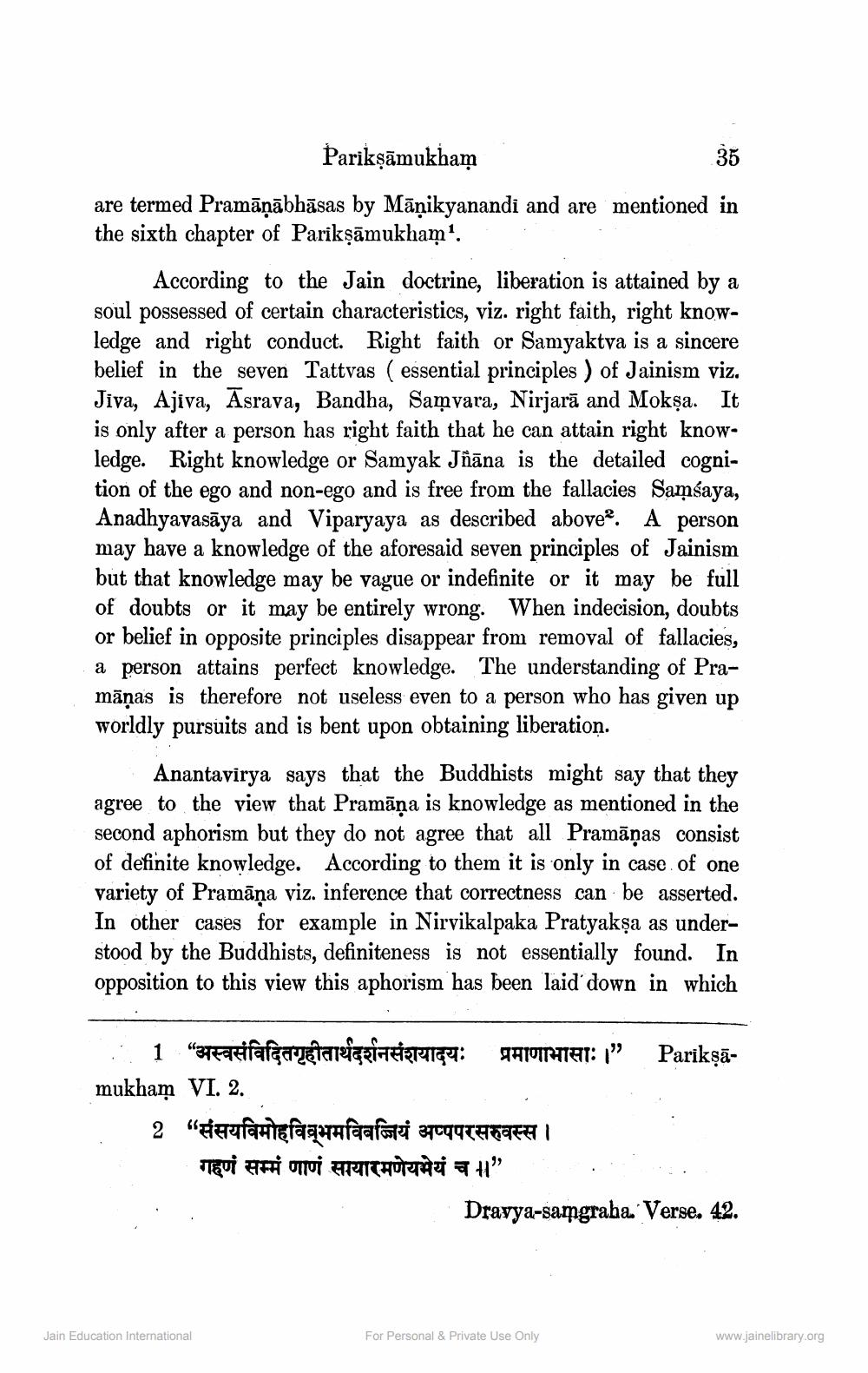________________
Þarikşāmukham are termed Pramāņābhāsas by Māņikyanandi and are mentioned in the sixth chapter of Parikşāmukham'.
According to the Jain doctrine, liberation is attained by a soul possessed of certain characteristics, viz. right faith, right knowledge and right conduct. Right faith or Samyaktva is a sincere belief in the seven Tattvas ( essential principles ) of Jainism viz. Jiva, Ajiva, Asrava, Bandha, Samvara, Nirjarā and Mokşa. It is only after a person has right faith that he can attain right knowledge. Right knowledge or Samyak Jñāna is the detailed cognition of the ego and non-ego and is free from the fallacies Samsaya, Anadhyavasāya and Viparyaya as described above. A person may have a knowledge of the aforesaid seven principles of Jainism but that knowledge may be vague or indefinite or it may be full of doubts or it may be entirely wrong. When indecision, doubts or belief in opposite principles disappear from removal of fallacies, a person attains perfect knowledge. The understanding of Pramāņas is therefore not useless even to a person who has given up worldly pursuits and is bent upon obtaining liberation.
Anantavirya says that the Buddhists might say that they agree to the view that Pramāņa is knowledge as mentioned in the second aphorism but they do not agree that all Pramāṇas consist of definite knowledge. According to them it is only in case of one variety of Pramāņa viz. inference that correctness can be asserted. In other cases for example in Nirvikalpaka Pratyakşa as understood by the Buddhists, definiteness is not essentially found. In opposition to this view this aphorism has been laid down in which
1 "tasifalgaryetariąsiadruga: JAUNATAT: 1" Parikşāmukham VI. 2. 2 " fanteraquafarafanzi 37699THAFFI OTEVÍ FANOU HMITTAUTAI TH”
Dravya-samgraba. Verse. 42.
Jain Education International
For Personal & Private Use Only
www.jainelibrary.org




